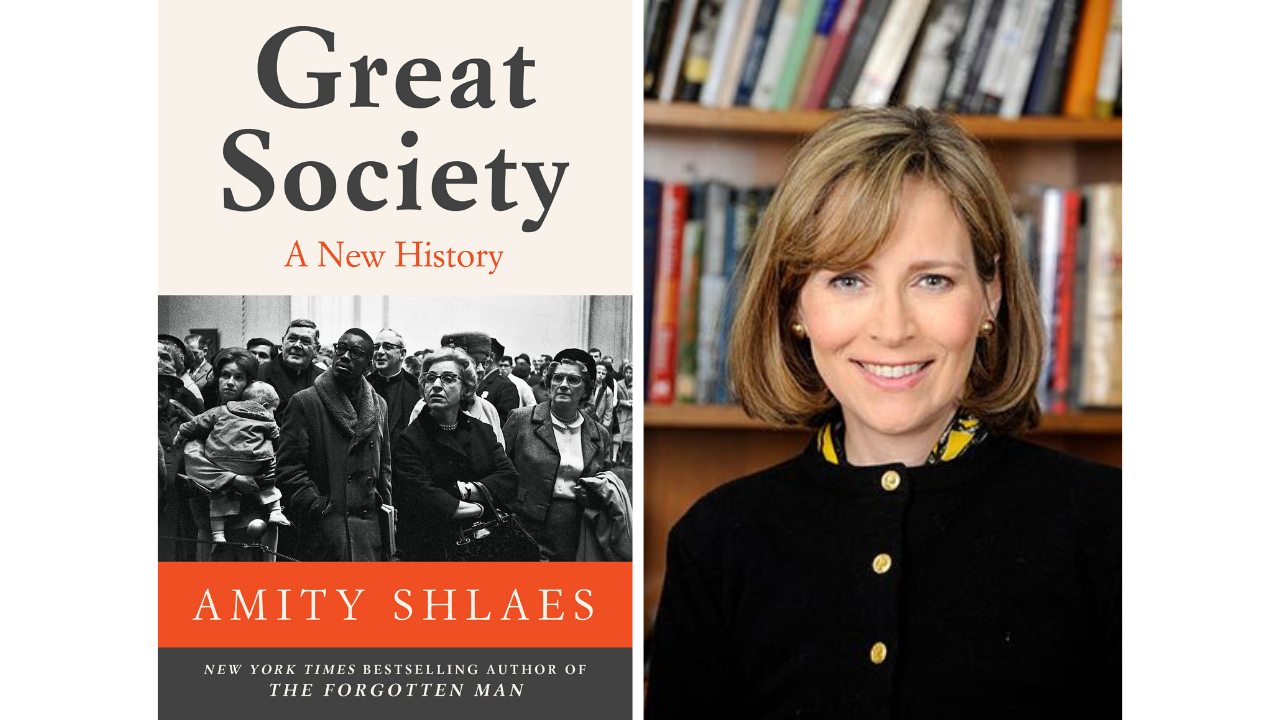Great Society: A New History by Amity Shlaes
February 1, 2020
In January, we hosted author and historian Amity Shlaes at our Conservative Women’s Network luncheon co-hosted by the Heritage Foundation. Her newest book, Great Society: A New History, traces the results of the Great Society era and shows its effects to be far from great, and actually, devastating. Her book, along with her others, is a must-read for any history junkie.
About the book…
The biggest debates in American politics today—about how to end poverty, improve living standards for the middle class, protect the environment, and provide access to health care and education—are nothing new under the sun. These same issues divided the country in the 1960s. Then, as now, Americans debated socialism versus capitalism and public sector versus private-sector reform. Time and again, whether under John F. Kennedy, Lyndon Johnson, or Richard Nixon, the country chose the public sector. The result was the Great Society—a wave of massive reforms, implemented from the top-down by experts and bureaucrats.
In her book, Shlaes offers a powerful companion to her legendary history of the 1930s, The Forgotten Man, and shows that in fact there was scant difference between two presidents we consider opposites: Johnson and Nixon. Just as technocratic military planning by “the Best and the Brightest” made failure in Vietnam inevitable, so planning by a team of the domestic best and brightest guaranteed fiasco at home. At once history and biography, Great Society sketches moving portraits of the characters in this transformative period, from U.S. Presidents to the visionary UAW leader Walter Reuther, the founders of Intel, and Federal Reserve chairmen William McChesney Martin and Arthur Burns. Great Society casts new light on other figures too, from Ronald Reagan, then governor of California, to the socialist Michael Harrington and the protest movement leader Tom Hayden.
Drawing on her classic economic expertise and deep historical knowledge, Shlaes upends the traditional narrative of the era, providing a damning indictment of the consequences of thoughtless idealism with striking relevance for today. Great Society captures a dramatic contest with lessons both dark and bright for our own time.
Still debating whether this book is right for you? Listen to Amity discuss her book at our Conservative Women’s Network luncheon just days after its release!
Discussion Questions
Amity Shlaes sketches the biographies of several significant figures during the Great Society era that helped shape the future of the United States. In your opinion, which character had the most influential legacy on the debate between public and private sector reform?
What are some other examples of top-down reforms initiated by the government in the hopes of solving a massive, complex problem?
Tell us your thoughts in the comments below!

